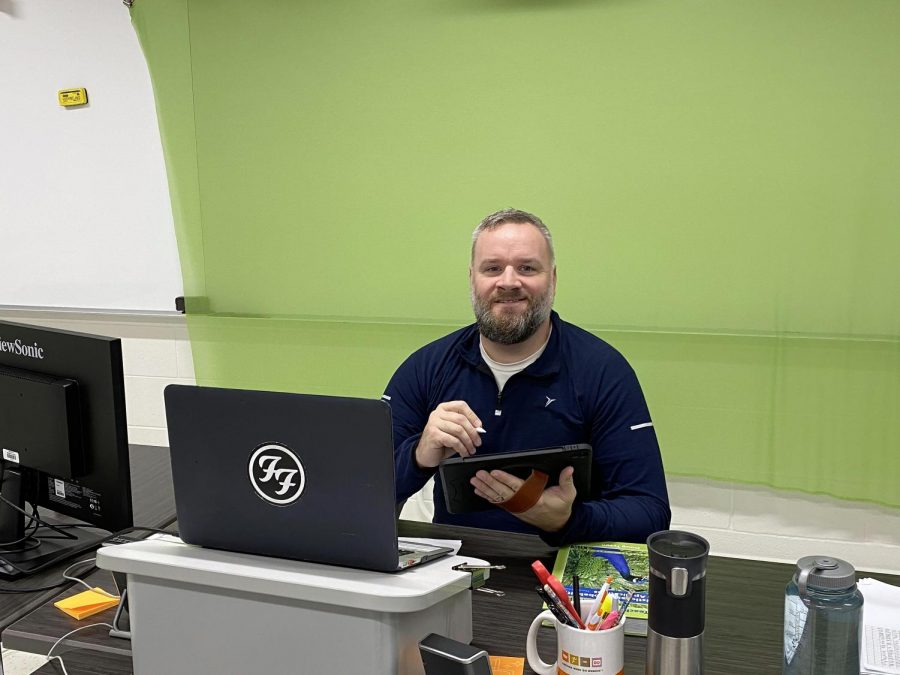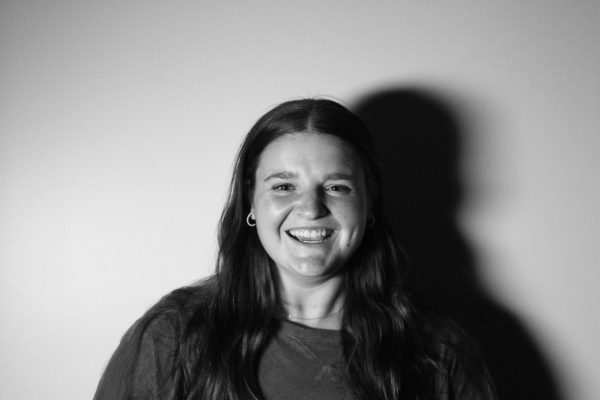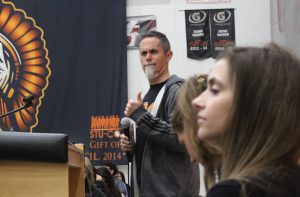Calculations and compassion
MCHS math teacher Lukas finds new ways to help his students succeed virtually
Sitting at his desk, Lukas reinvents what teaching math looks like with the use of digital technology.
November 5, 2020
Mr. Andrew Lukas sits at his desk, ready to log onto Zoom for another day of classes. This day, like any other, will pose new challenges for him. Virtual learning is uncharted territory, and many teachers are finding that they must alter their style and class to best suit our new environment. As a math teacher at McHenry Community High School, Lukas is making changes to his lessons every day to help himself and his students overcome the obstacles of a remote education.
Remote learning has created more challenges than ever before for teachers. Lukas has found this to be very true. He says that the thing he misses most about teaching in-person is being with his students. “I realized how much I feed off of the energy of my students…that drives my instruction,” Lukas shares. While his students pay attention and do what they’re told, it can seem like he is talking to himself for hours on end, rather than leading a class of curious teenagers. Virtual learning is not something anyone was prepared or trained for, and Lukas understands this. “I’m learning stuff every single day…I feel like a first year teacher again.” he admits. Despite facing his own challenges, Lukas will not give up on his students, and is always looking for another way to help them.
Some students expected learning math online to be very difficult, and freshman Ella Boland is one of them. Lukas has helped her to overcome this fear and work through any trouble. “Mr. Lukas has made math a lot easier to learn online than I first thought it would be.” she expresses. His continual effort to assist his students is what sets him apart from other teachers right now. Fellow freshman Katie Potter is also in Lukas’s Honors Geometry course. “I love Mr. Lukas, he makes learning so much easier and fun with all of the resources he gives to us,” Potter discloses. Some of these resources include example videos, substantial notes on each concept, additional help during office hours, and catering to each students’ individual needs. Lukas has learned that getting through remote learning is a gradual, collaborative process, rather than one where he makes all of the decisions.
Student opinion is very valuable to Lukas, and this is evident in his classes. He is constantly asking questions and finding out what his students prefer. He claims that you cannot learn math without experiencing math, and you cannot experience math unless you are motivated. To help motivate students, Lukas has tried to be more lenient with the difficulty of his classes. “There’s definitely been a little bit of a drop-off. I try to kind of take that into consideration with grading,” Lukas confesses about student performance. He is grateful for the students who show up every day and complete their work, yet understanding of those who do not. Everyone has experienced different and unique challenges during this time, and he is very considerate of that. Potter states, “Mr. Lukas has allowed our class extra time for assignments and tries to make it his priority to make sure we understand all of our materials.” Lukas is constantly working with students such as Potter and Boland to make remote learning a positive shared experience.
Remote learning has posed unprecedented challenges for many educators. Lukas has put his students first yet again, and found new ways to interact. Learning math virtually is not ideal for anyone, but a compassionate and understanding teacher can undoubtedly make it better. Lukas is always looking for another door that leads to his students’ success.











